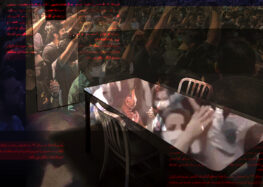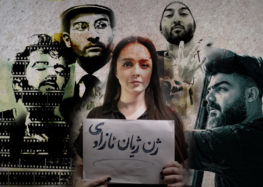Reformist Journalist Freed from Prison after Serving Four Years
The prominent journalist Alireza Rajaee has been released from prison upon completion of a four-year sentence for his journalistic work and peaceful political activism.
Rajaee, a member of the Iranian Journalists Association’s Board of Directors, walked out of Evin Prison on October 26, 2015. He had been held at the Prison’s Ward 350 since May 2011.
The Islamic Revolutionary Court sentenced Rajaee to four years in prison and five years’ banishment from civil and political activities for “membership in a nationalist-religious coalition,” “acting against national security,” and “propaganda against the state.”
Rajaee was a political editor in a number of banned reformist publications, including Neshat, Jame’eh, Tous, and Asr-e Azadegan. He was first arrested in 1990 along with a number of high-ranking members of the now-banned Nationalist-Religious Alliance, a nonviolent political opposition group. In 2001, he was sentenced by an Islamic Revolutionary Court to three years in prison and a five-year ban on civil and political activities. Enforcement of this sentence was suspended.
In the 1999 Parliamentary elections, Rajaee won a seat from Tehran but his victory was snatched away after a “re-count” by the Council of Guardians, which resulted in Gholamali Haddad Adel, a close aide to Supreme Leader Khamenei, taking the seat instead.
During his time in prison, Rajaee’s family members were frequently put under intense pressure by Iran’s security forces, including a demand from one of the interrogators that his wife should divorce him.
In December 2012, political prisoner Abolfazl Ghadyani wrote a letter to Iran’s Chief Justice, Sadegh Larijani, demanding an end to the Intelligence Ministry’s harassment of the families of political prisoners.
“From the beginning of Dr. Alireza Rajaee’s illegal detention, [the Intelligence Ministry interrogator, Mr. Awsat] has repeatedly harassed his family through different means and has put them under a variety of psychological and mental pressures, creating the worst conditions for a respectable and oppressed family,” Ghadyani wrote.







